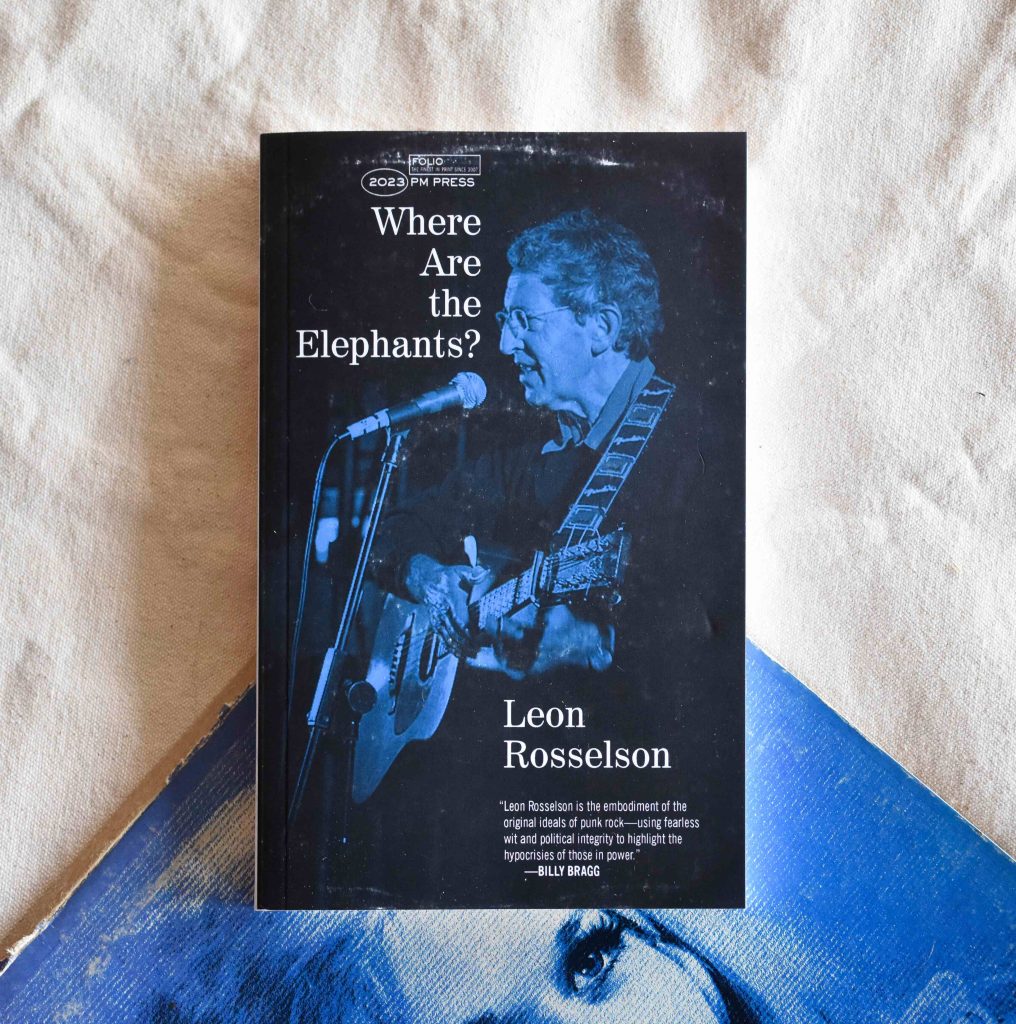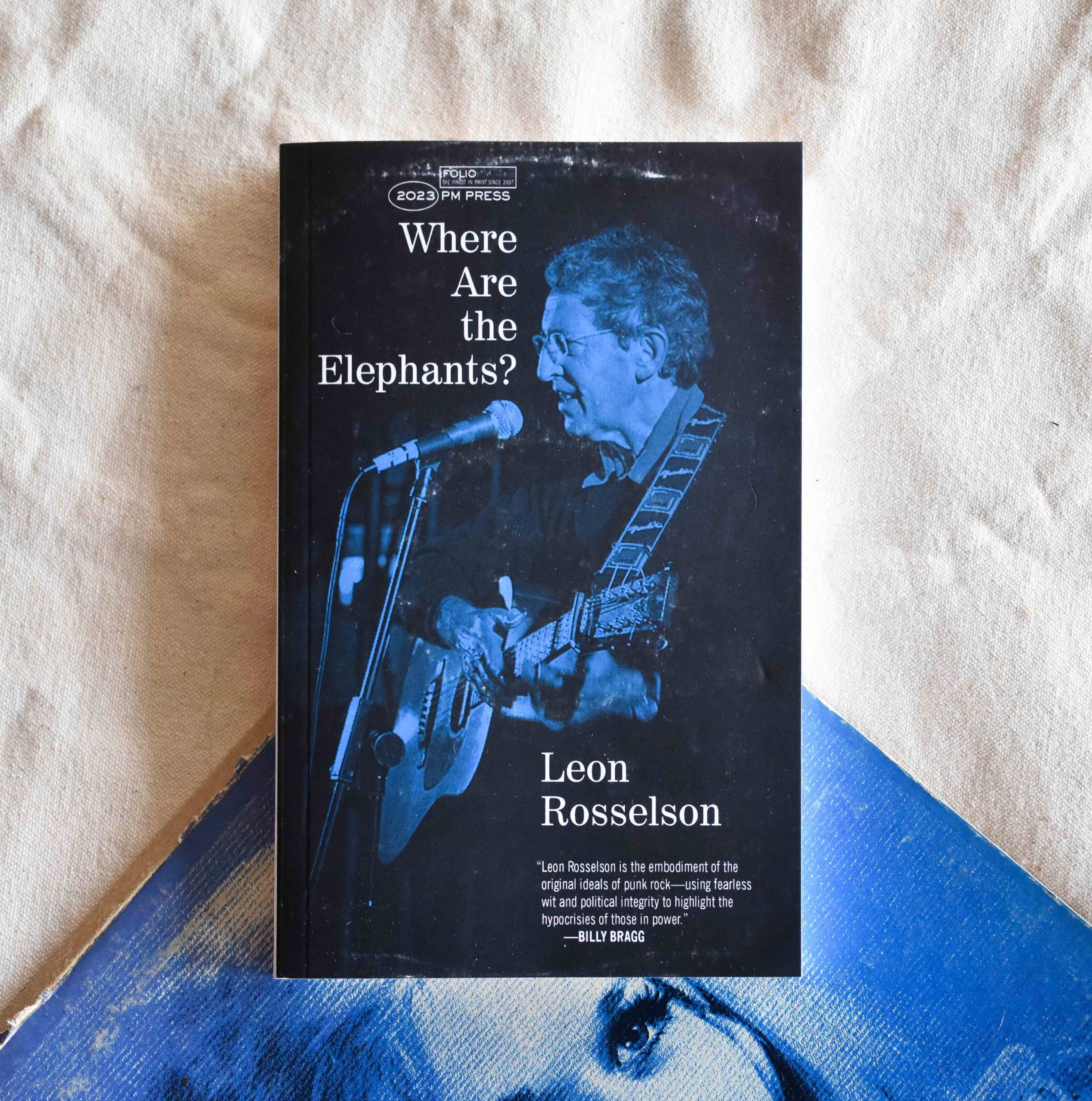Lipstick Socialist
May 4th, 2023
Leon Rosselson has been writing and performing songs for over sixty years. In this memoir we find out about the man, his motivation for his songs and his views on society and politics today.
Born into a London Jewish family, Leon breathed in the communist politics of his parents and community. From this experience he developed his own views of the world and used the art of song writing to tell stories and join with other people in struggles.
“From my childhood into my teenage years I seem to have followed a song trail leading almost inevitably to a place and time when I would be writing songs.”
Leon never joined the Communist Party but, in his youth, he joined the London Youth Choir which was a left-wing organisation. With them he travelled to the Soviet Union and took part in their alternative to Eurovision; the World Youth Festival.
In the 1950s the Soviet bloc was in meltdown as Khruschev exposed Stalin’s crimes, Russian troops rolled into Hungary in 1956 and many people left the Communist Party. Not Leon’s father, though: “For him, the Russian Revolution, led by Lenin and the Communist Party was the great hope for the world. How could he abandon it?”
The threat of a nuclear war between the USA and the Soviet Union drove young people like Leon into the Campaign for Nuclear Disarmament and onto their march to Aldermaston in 1958. CND wanted a silent march, but the LYC and many other musicians made sure there was plenty of music during the four-day trek.
The 1960s saw revolutions in thought and action across the world. Like many others Leon took up the cause of the Vietnam War – which was on television every night – and led to a mass campaign in this country. He sang at benefits and protests. He produced an LP with poet Adrian Mitchell called “A Laugh, a Song and a Hand Grenade” and had a book of fifty of his songs published. (There is one notable omission. Leon, like many other commentators on this period, fails to mention the Civil Rights Movement in the north of Ireland and the opposition to British rule.)
Leon is now in his 80s and in this memoir he looks back over his life and wonders what happened to all that hope for a better world. “All I know is that the end of Soviet style communism was not the end of history, that there is always hope, that people will always struggle against what is and will always envision a better, kinder, saner, more peaceful, and harmonious way of living together and respecting the natural world and those who make a home in it.”
Over the years he has written many songs, released over a dozen albums and songbooks and 17 children’s books. He does quote from his songs which reflect his life, his politics and are sometimes sad, but often very funny. Some such as “The World Turned Upside Down” about the Diggers of 1649 are the soundtrack to the left-wing history of this country. But he asks the question why in the mainstream of the English labour movement that there is no tradition of politically conscious, singable songs. He laments this silence.
He recalls how he and musicians from the Hackney Music Workshop decided to go down to the Grunwick strike picket line in 1977: their aim was to sing and give hope to the strikers. But no one joined in: – “they looked and listened as an audience.” The Grunwick strike was defeated, one of many such over the years.
Leon is Jewish and his political outlook has been shaped by a belief from an early age that Jews should always be on the side of the oppressed. “Being Jewish, even secular Jewish, means that you never quite belong, you are as my song says, looking at the world from the outside and so may be more sceptical of received truths, patriotisms, and nationalisms.”
Several chapters in his memoir takes up the issue of being an anti-Zionist Jew. He jokes about the rise of “zionusitis” – “a disease that has become increasingly fashionable in these grim times.” He recounts how in 2014 an elderly Jewish couple misheard the word “hummus” as “Hamas” and fled screaming from a restaurant. The source of this illness, he advises, can be traced “to a small self-styled democracy somewhere in the Middle East which calls itself Israel and claims to be Jewish. Whatever that means.”
Missing from this book is a list of his works. In the final section of the book, he is interviewed by friend and singer/songwriter Robb Johnson.
“Where are the Elephants?” is much more than one man’s life story. It is a reminder to all of how important song and political activity are in the struggle to make this a fairer, gentler society. And how important Leon Rosselson is in the history of that struggle.







